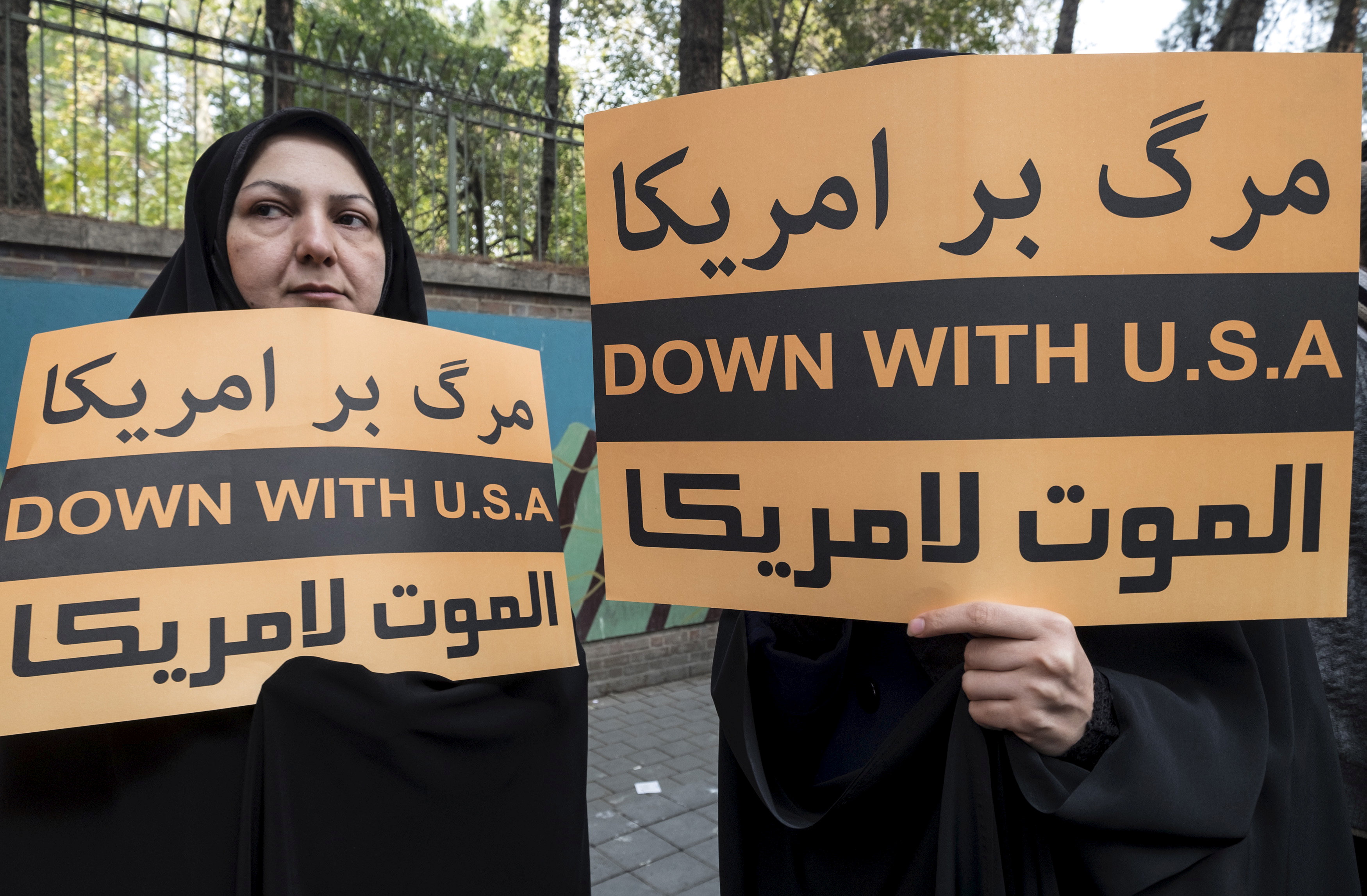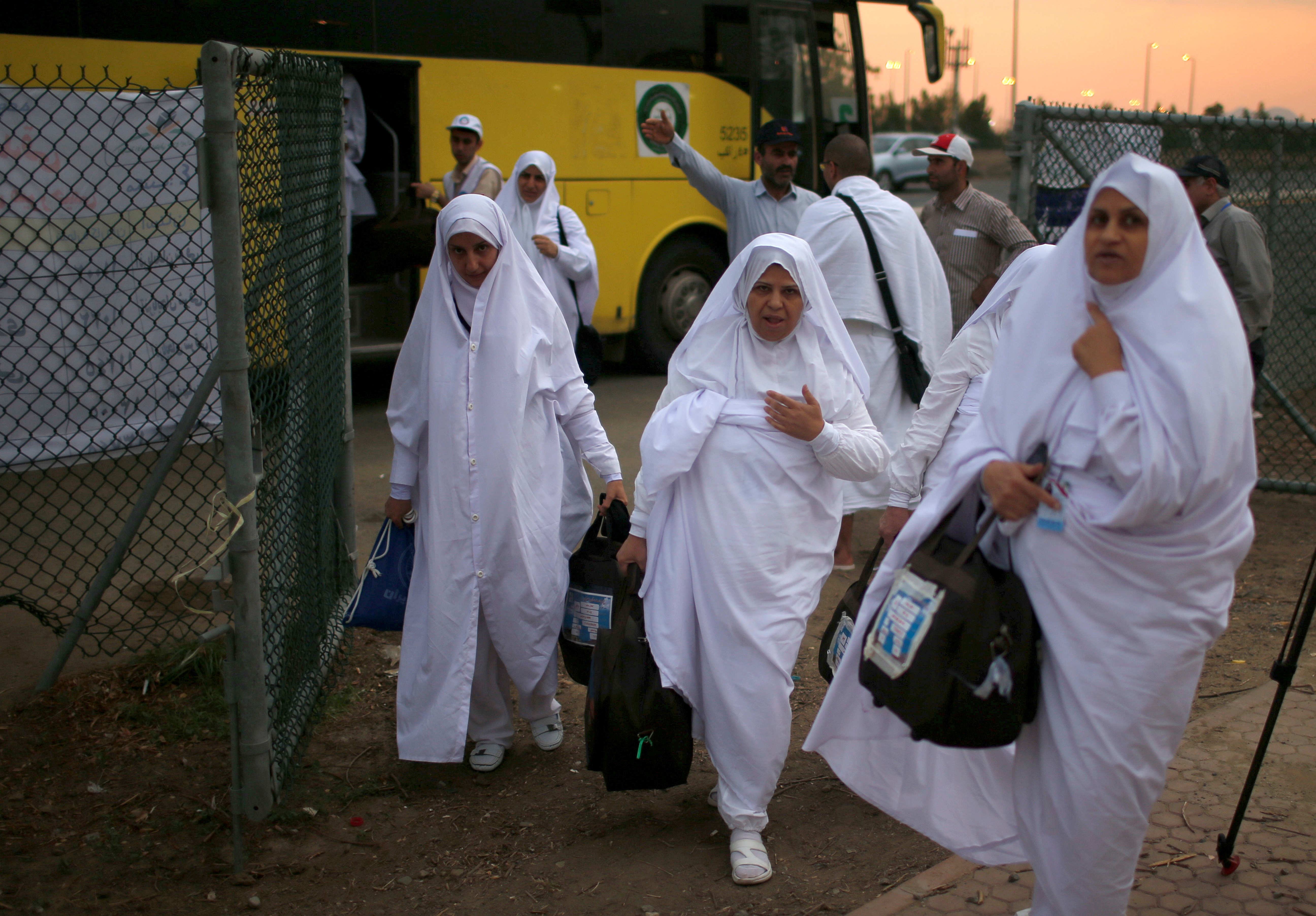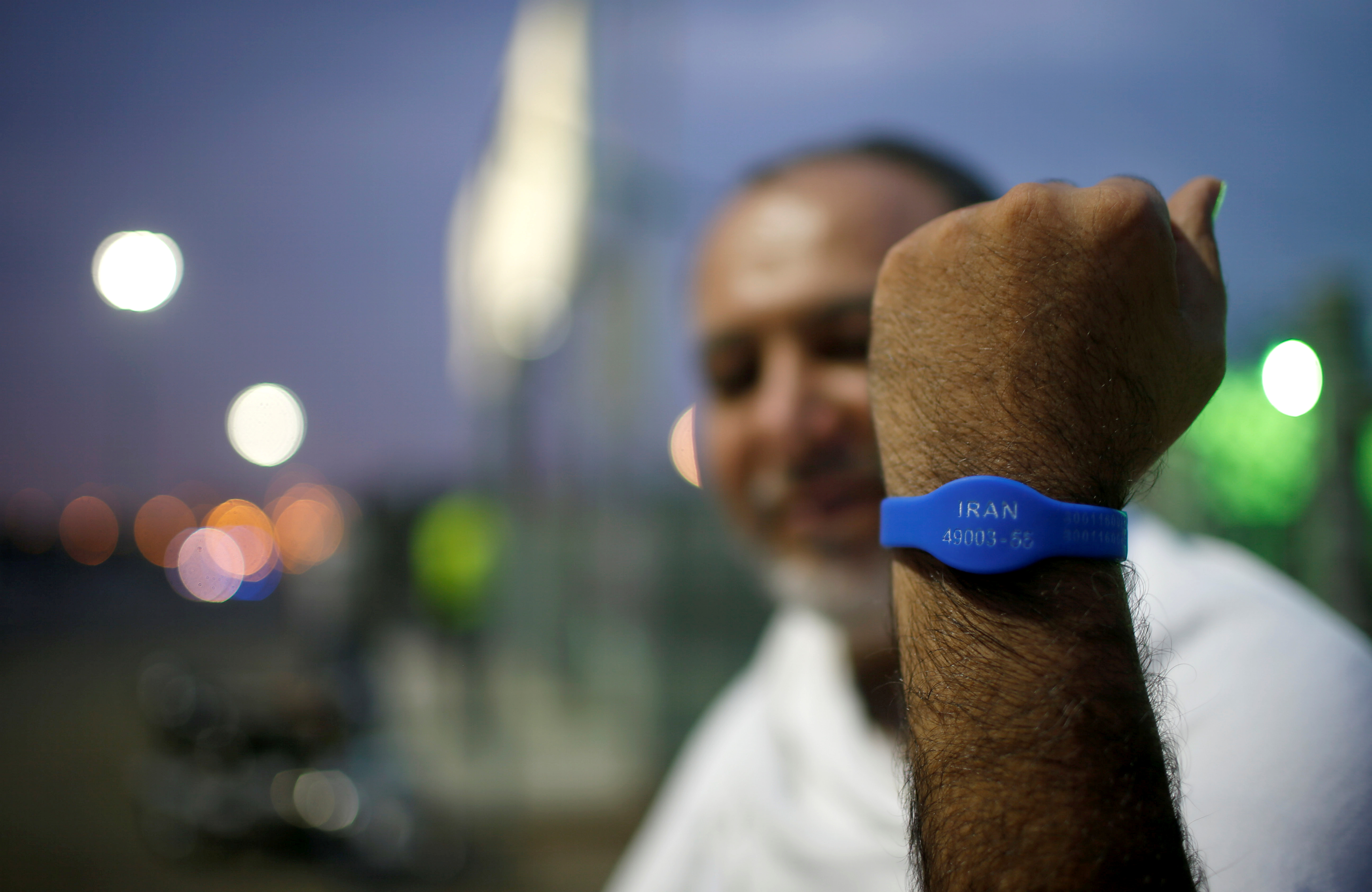
By Babak Dehghanpisheh
BEIRUT (Reuters) – A week after U.S. President Donald Trump delivered a blistering speech about Iran’s Revolutionary Guards, the most powerful military and economic force in the Islamic Republic has shown it has no intention of curbing its activities in the Middle East.
In defiance of other world powers, Trump chose in a speech last Friday not to certify that Tehran is complying with a pact to curb Iran’s nuclear work and singled out the Islamic Revolutionary Guard Corps (IRGC), accusing Tehran of destabilizing the region.
A senior IRGC commander said after the speech Trump was “acting crazy” and was following U.S. strategy of increasing “the shadow of war in the region”.
Iran’s Shi’ite militia proxies have made formidable military gains in recent months in Syria as well as Iraq, stretching from northern Iraq to a string of smaller cities and this week, after the Trump speech, re-captured the oil-rich city of Kirkuk.
“In the short-run clearly Trump has increased the power and aggressiveness of the IRGC,” said Abbas Milani, the director of the Iranian Studies program at Stanford University.
“The IRGC can’t back down from a street fight. Their domestic and regional prestige is predicated on the fact that they fight a good fight and they don’t back down.”
The day after Trump spoke, the head of the Guards’ al Quds overseas operations, Major General Qassem Soleimani, traveled to Iraq’s Kurdistan region. He held talks about the escalating crisis between Kurdish authorities and the Iraqi government after a Kurdish independence referendum.
The niece of the late Kurdish leader Jalal Talabani, Alaa Talabani, told the al Hadath TV channel that Soleimani met with members of her family on Saturday. He had come to pay respects to Jalal, a former Iraqi president and founder of the Patriotic Union of Kurdistan (PUK) party who died this month.
Other Iraqi and Kurdish officials told Reuters Soleimani held meetings with Kurdish leaders to persuade them to retreat from Kirkuk ahead of the Iraqi army push into the city.
“I don’t deny that Mr. Qassem Soleimani gave us the advice to find a solution to Kirkuk,” she said. “He said Kirkuk should return to the (Iraqi) law and constitution and to have an agreement about Kirkuk and give up the intransigence about the referendum which was a decision not thought out.”
LIGHTNING ASSAULT
Within days, Iran’s mostly Shi’ite allies in Baghdad launched a lightning assault, pushing Kurdish fighters out of disputed territories such as Kirkuk and consequently strengthening Iran’s hand in Iraq.
Commanders of the Kurdish forces, known as the Peshmerga, have accused Iran of orchestrating the Shi’ite-led Iraqi central government’s push into areas under their control, a charge senior Iranian officials have denied.
A video posted by the Kurdish Rudaw channel online on Wednesday showed an Iraqi Shi’ite militiaman loyal to Iran hanging a picture of Iran’s Supreme Leader Ayatollah Ali Khamenei in the Kirkuk governorate office.
Iran, which has a large Kurdish minority, has reason to be wary of Iraqi Kurdish independence. It fears it might encourage its own Kurds, who have also pushed for separatism.
After the independence vote in Iraqi Kurdistan on September 25, videos posted online showed hundreds of people celebrating in the streets in the Kurdish areas of Iran.
FRONT-LINE PLAYER
Regional analysts say the emergence of Iran in Iraq, Syria, Kurdistan and Lebanon, where it wields influence through its allied Shi’ite Lebanese Hezbollah militia, means Tehran has become a front-line player in the region which Washington could not afford to ignore.
“Trump’s stupidity should not distract us from America’s deceitfulness … If the U.S. tears up the (nuclear) deal, we will shred it,” said Khamenei. “Americans are angry because the Islamic Republic of Iran has managed to thwart their plots in Lebanon, Syria, Iraq and other countries in the region.”
Speaking after Trump’s speech, Amir Ali Hajizadeh, head of the Guards’ aerospace division, said: “From the start of the Islamic revolution … (presidents) have increased the shadow of war in the region …
“Dear brothers and sisters today Trump is acting crazy to gain concessions through this method.”
The ramping up of tension could put the two countries on a collision course in the Gulf where clashes have only been narrowly avoided in recent months.
Small boats from the Revolutionary Guards’ navy veered close to U.S. naval vessels in the Gulf at least twice this year, prompting the U.S. military to fire warning shots and flares.
In August, an unarmed Iranian drone came within 100 feet (31 meters) of a U.S. Navy warplane, risking a crash, according to a U.S. official.
Some recent naval showdowns between Iran and the United States took place near the Strait of Hormuz, a waterway where up to 30 percent of global oil exports pass annually.
During the presidential campaign last September, Trump vowed that any Iranian vessels that harassed the U.S. Navy in the Gulf would be “shot out of the water”.
POTENTIAL FLASHPOINT
The Guards could also target U.S. forces in Iraq and Syria through tens of thousands of loyal Shi’ite militia fighters without directly acknowledging a role in any attacks.
“The IRGC can claim ignorance of Shi’ite militia attacks against the U.S. military,” said Ali Alfoneh, a senior fellow at the Atlantic Council who has done extensive research on the Guards.
In early October, an American soldier was killed in Iraq by an explosively formed penetrator, or EFP, a type of roadside bomb which was often used by Iran’s Shi’ite militia proxies in Iraq, according to the U.S. military.
“This is the first time that we’ve seen it used in this area,” U.S. Army Colonel Ryan Dillon, a coalition spokesman, said. Dillon said the U.S. military has not yet concluded who carried out the attack.
Dozens of American soldiers in Iraq were killed and injured by EFPs used by militia groups linked to Iran after the 2003 invasion of Iraq by U.S. forces, according to the U.S. military.
Asked about the threat posed by Shi’ite militias allied with Iran in Iraq and Syria, particularly after Trump’s speech, Dillon said: “We’re always assessing the threats no matter where they come from. During certain announcements or certain dates or when certain events happen, we make proper adjustments.”
Trump’s new plan, observers say, will also weaken a group that had made progress in curbing the Guards’ political and economic ambitions in recent years: Iranian President Hassan Rouhani and the pragmatist politicians in his cabinet.
Since becoming president in 2013, Rouhani and members of his cabinet repeatedly pushed back against the Guards’ economic influence and involvement in political matters.
Now, Rouhani’s push against the Guards has been tempered because of the hardening in Trump’s approach to Tehran, regional observers said. “What this has done is that even those who were critics are now defending the Revolutionary Guards,” said Nasser Hadian-Jazy, a political science professor at Tehran University.
(Reporting By Babak Dehghanpisheh and additional reporting by Maher Chmaytelli in Erbil, editing by Nick Tattersall and Peter Millership)











